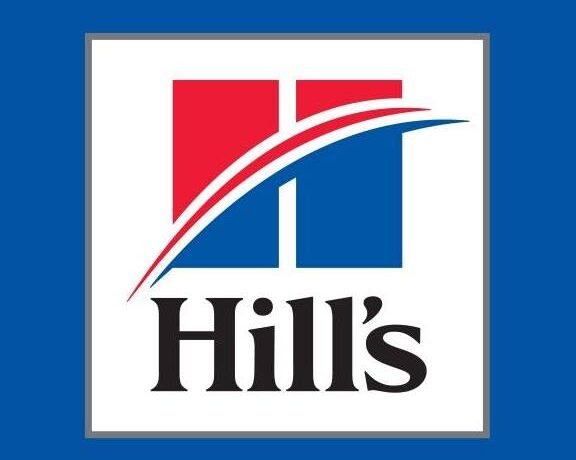Routine Healthcare for Rabbits and Small Pets
Rabbits are now the UK’s third most popular pet, with around 1.5 million of them kept in our homes, sheds and gardens. Unfortunately their welfare needs are still widely misunderstood, and a lot of our work with rabbits is educating owners about the housing, exercise, dietary and social needs of these highly intelligent and inquisitive animals. Rabbits have routine veterinary healthcare requirements just like dogs and cats, and rabbits can join our Pet Health Club too.
Our vets are also very happy to treat other small pets including guinea pigs, ferrets, hamsters, gerbils, rats, mice and pet birds.
Vaccinations
Rabbits are susceptible to two diseases which are highly infectious and usually fatal. Myxomatosis is found throughout the UK wild rabbit population and can be spread to pet rabbits by biting insects such as fleas, ticks and mites. It causes swelling of the eyes and genitals and breathing problems. Viral haemorrhagic disease (VHD) is spread by direct contact between rabbits and also indirectly for example on skin, clothes and shoes (so even house rabbits can get it). It can cause profuse bleeding or often sudden death.
Rabbits should be vaccinated against myxomatosis and VHD from 5 weeks old and thereafter receive a yearly booster. A new vaccine against a more recent strain of VHD is also available. Rabbit vaccines are included in our Pet Health Club.
The combined myxomatosis, VHD-1 and VHD-2 vaccine normally costs £52.50.
Flystrike, flea and worm prevention and treatment
Flystrike is a potentially very serious condition which is caused by flies laying eggs around the back end of the rabbit during the summer months. These hatch into maggots which burrow into the rabbit’s flesh as they feed and grow. We advise routine preventative topical applications throughout the summer months to prevent this distressing problem, included in the Pet Health Club.
We can treat rabbits for fleas, but as they are not particularly common in domestic rabbits, we don’t usually advise regular preventative flea products. Rabbits may be de-wormed 2-4 times per year as required with a paste given by mouth, which is also included in the Pet Health Club.
Neutering
Pet rabbits can be spayed (females) or castrated (males) to prevent unwanted kittens where two or more rabbits of different sexes live together. Cancer of the reproductive system is fairly common in female rabbits and can be prevented by spaying, while castration can reduce agressive behaviour in males.
We can spay or castrate from around 4-6 months of age. Our vets or veterinary nurses will be happy to discuss the benefits of neutering and explain the process to you. The cost of neutering a female rabbit is £99.00, and a male rabbit £82.60. There is a 10% discount on neutering for Pet Health Club members.
We offer neutering for ferrets as well. Due to their unusual breeding cycle, female ferrets can become seriously ill due to anaemia if they are not mated to end their long breeding cycle. Using a male ferret which has had a vasectomy is one of a number of ways of keeping the female heathly but not resulting in a pregnancy. Please contact us for more information on the reproductive care of ferrets.
Diet
Good quality hay and grass along with fresh, clean drinking water should make up the majority of your rabbits' diet. A rabbit's digestive system needs hay or grass to function properly so a constant supply is extremely important. You can supplement with leafy greens - there is great advice on which are suitable from the Rabbit Welfare Association & Fund.
Pellets or nuggets are also a good addition to hay (choose these rather than mixes to prevent selective feeding which can result in an imbalance of vitamins and minerals). Rabbit members of our Pet Health Club get 15% off Burgess Pet Foods.
Dental care
Many dental problems in rabbits (and other small pets) are related to diet. Unlike dogs and cats, rabbit’s teeth grow continuously throughout their life, and need to be ground down by the action of chewing grass or hay. Malocclusions (where the opposing teeth don’t line up perfectly) are also quite common in rabbits, and lead to uneven wear and the development of painful sharp points.
Rabbits which have visible inscisor (front teeth) problems, runny eyes or a lumpy jaw, or those which have difficulty eating or are losing weight, will need to be checked for dental disease.
We can carefully use a burr to file down the front incisors of rabbits (while fully conscious), at a cost of £22.20, but any other dental work will need a general anaesthetic. We will be happy to give an estimate after examining the rabbit. Don’t forget rabbits in our Pet Health Club get 15% off any dental treatment required!
Nail clipping
Some rabbits and guinea pigs will need their nails trimmed regularly if they tend to become overgrown and sharp. This normally costs £10.00 or is included in our Pet Health Club for rabbits. We can also show you how to do this yourself - the nails musn’t be cut too short, or they will bleed (quite a lot sometimes!)
We can also trim pets birds nails, and file the beak if necessary.
Microchipping
We can microchip rabbits and other small pets (they can’t usually wear a collar and tag). The microchip is a tiny chip (the size of a grain of rice) which is usually implanted in the back of the neck - if the pet is lost and picked up as a stray and scanned, the details read by the scanner will be linked to your contact information.
Microchipping is included for rabbits in the cost of our Pet Health Club membership (normal cost £20). We can also check that your rabbit’s microchip is working at any time. Please also remember to update your contact details if you move house or change your phone number.
















